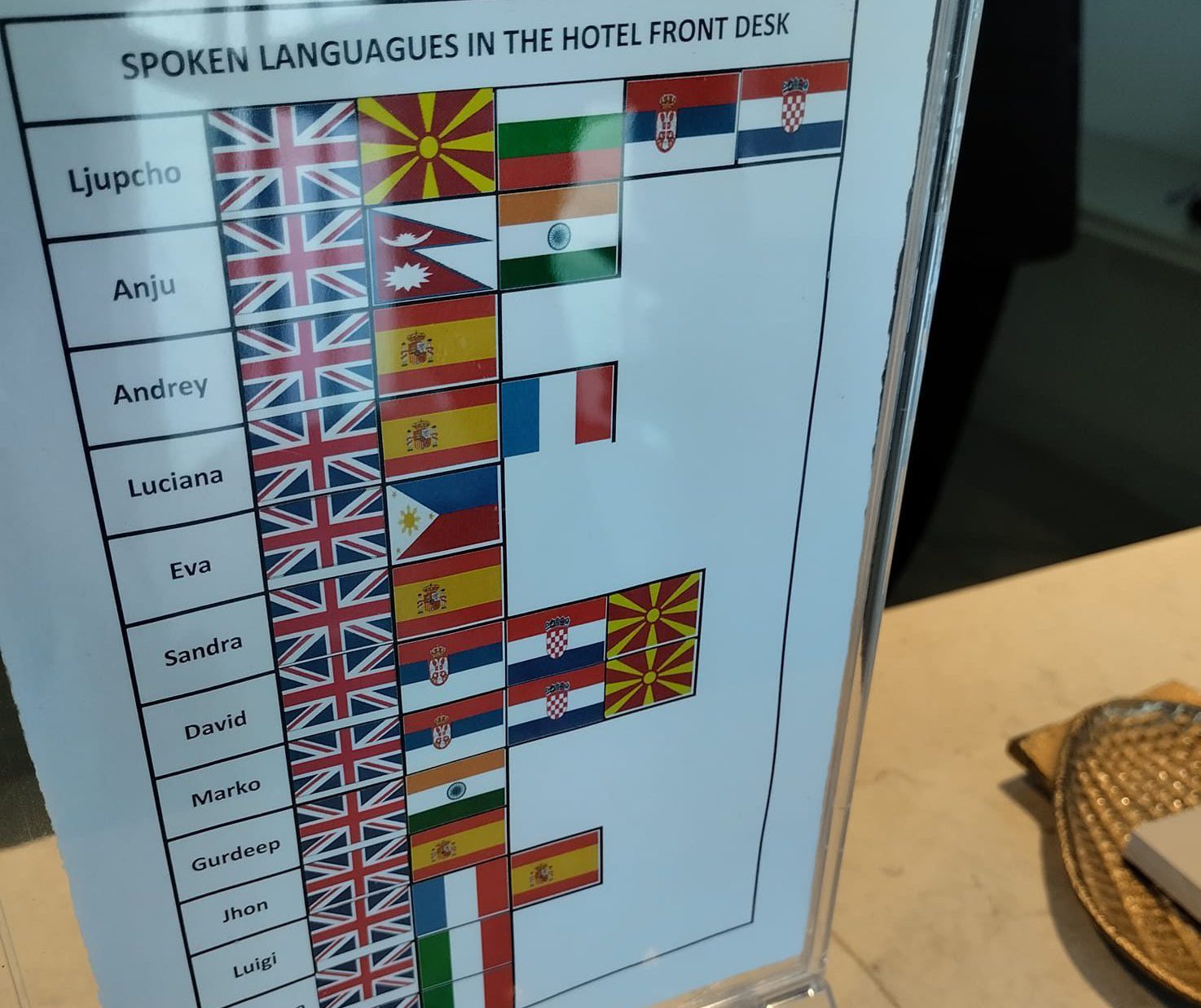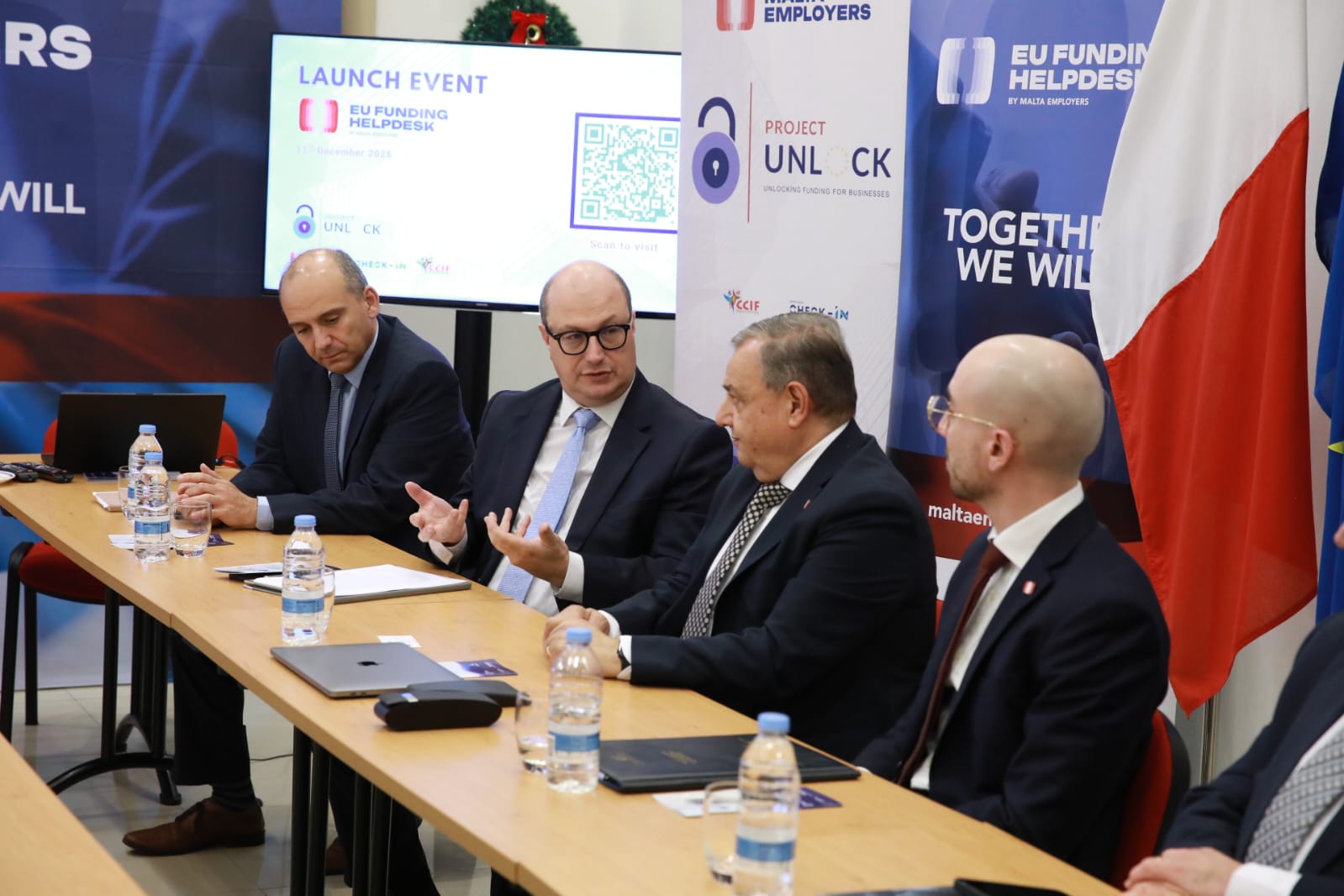Locals found themselves frustrated after discovering that the Seaview Hotel in St Paul’s Bay does not have any Maltese-speaking front-desk receptionists.
Posting on the popular ‘Are You Being Served’ group on Facebook, a local shared an image, presumably taken at the front desk of the hotel, depicting a list of receptionists working at the hotel and the languages they speak.
The Seaview Hotel is an adult-only accomodation. Originally built in the 1960s, it was used as a retreat house for the monks until its conversion into a hotel. Eventually, Angelo Vella purchased the hotel, added another storey and set up Angelo Catering Ltd in 1976. The hotel was later ran by Mr Vella’s son Isaac Vella after its purchase in the early 1990s.
In order to expand the business, Mr Vella stopped operations in October 2016, demolished the hotel and rebuilt in 2019. After re-opening its doors in 2021, the hotel now operates with a four star Superior Status, granted by the Malta Tourism Authority.
“Guess which nationals are not being served at this hotel front-desk in Malta?” the local asked.
Notably, the image revealed that while all receptionists spoke English, none spoke Maltese. In addition, they spoke in Italian, French, Spanish, Macedonian, Serbian, Croatian, Tagalog, Indian, and Nepalese.
This post sparked an uproar, with many commenting that it is “shameful” for Maltese not to be spoken in a hotel in Malta.
This sentiment is growing among many locals who frequently remark that due to the increasing number of foreigners on the islands, many are unable to request services – such as in the catering industry, like restaurants – in Maltese.
“The question is, where are the Maltese that still want to work in hotels?” one asked.
Others argued that not many Maltese are willing to work as a receptionist or in similar hospitality industry jobs due to the low pay.
With the cost-of-living crisis affecting employees in their day-to-day life, low-income jobs are naturally not being filled by locals. Moreover, many businesses are facing ever-increasing inflationary pressures and costs, thereby reducing their profits and the possibility of raising wages.
As a result, in recent years many foreigners – the majority of whom are third country nationals – have come to Malta to meet the demand in the hospitality, catering, health, and construction industry, among others.
Despite many Maltese residents arguing on the issue of low pay, others insisted that each country prioritises its national language. In response to this post, a Maltese individual expressed embarrassment at being Maltese.
“In what country do you [find a hotel] in which their respective national language is not spoken? On the contrary, in other countries, if one does not know how to speak their language, they will expect you to figure out a way to communicate. In some instances, they do not know how to speak in English. We are very behind,” she added.
Featured Image:
Malta International Airport registers 734,791 passenger movements in November
A total of 207 flights were operated on 1st November, carrying 33,557 passengers
Malta ranks 9th most expensive in Europe for food prices
At the top of the price ladder, non-EU states like Iceland, Switzerland and Norway lead with the highest levels
EU Funding Helpdesk launched as one-stop-shop for business opportunities
The Helpdesk aims to support businesses in their pursuit of local and EU funding opportunities






